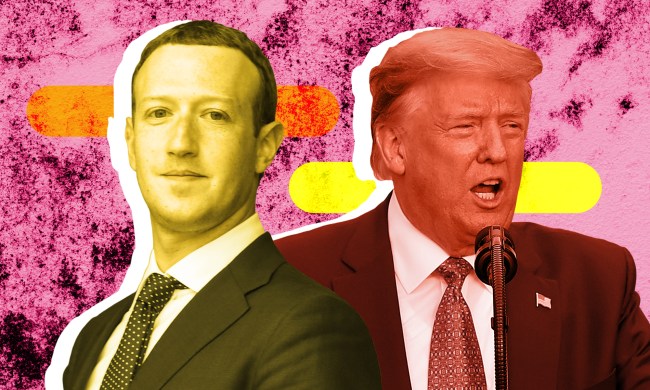Facebook is hoping to have fewer “whoops” moments by working to identify threats as they happen — starting with elections. On Thursday, May 17, Facebook announced a partnership with the Atlantic Council to spot potential election threats with real-time insights.
“Experts from their Digital Forensic Research Lab will work closely with our security, policy, and product teams to get Facebook real-time insights and updates on emerging threats and disinformation campaigns from around the world,” wrote Katie Harbath, the global politics and government outreach director for Facebook. “This will help increase the number of ‘eyes and ears’ we have working to spot potential abuse on our service — enabling us to more effectively identify gaps in our systems, preempt obstacles, and ensure that
The Atlantic Council’s Digital Forensic Research Lab (DFRL) is a group researching and designing open source tools against fake news and human rights violations. The organization says that its focus isn’t changing with the partnership and that the group is still critically examining all platforms. What’s changing is that the organization is working with Facebook to help move from reacting to disinformation to working more proactively.
DFRL works to understand disinformation trends in order to detect abuse quickly. “We will not be monitoring elections for Facebook: it’s a company that will have a dedicated team expected to reach 20,000 people this year, aimed at doing that,” wrote Graham Brookie, the lab’s acting director. “Our mission will be to monitor the whole information space, from social media giants to emerging and locally relevant platforms to traditional media and to the engagement spaces in between.”
While Brookie says the change isn’t going to be an instant one, the group is working to help close the information gap by working with governments, tech companies, and the media.
Facebook is also enlisting the help of the Atlantic Council’s Digital Research Unit Monitoring Missions. This group will assist during elections and other big moments to look for disinformation campaigns within a specific location where the election or event is happening.
Even Facebook CEO Mark Zuckerberg admits that the company’s response to the Russian-bought political ads during the 2016 U.S. election was too slow. By working with an organization focusing on identifying misinformation trends quickly, the platform is hoping to quickly recognize threats as they emerge. The latest partnership joins additional efforts including an increase in security staff and new requirements for political advertisers.



